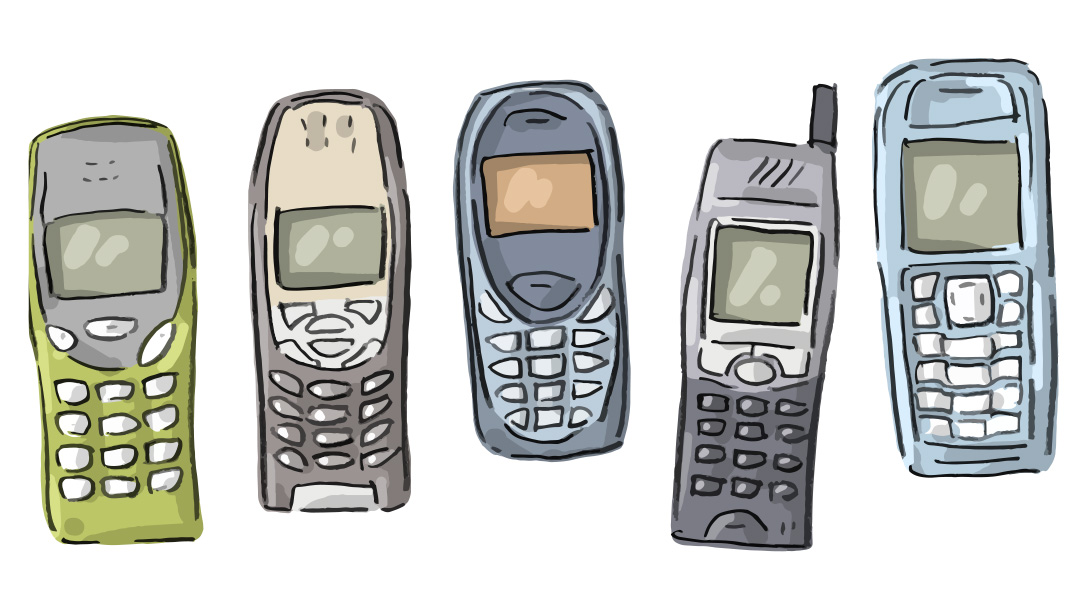Just Give Me a Ring
| February 27, 2024Your unpaid position as shidduch-call secretary will bring you into contact with a whole gamut of people

A
fter many years of answering shidduch phone calls, I know what to expect when an unfamiliar number flashes on my screen — it’s a future mother-in-law on the line.
These calls tend to come in when you’re in a moving vehicle with poor Bluetooth reception. “Hello,” the voice on the other line crackles, “do you have a moment? I’m calling about so-and-so.” So-and-so, who is currently sitting comfortably in the passenger seat of your car, perks up at the mention of her name.
“Oh, I’m so sorry, but can I call you back at a different time?” you ask politely, and hurry to hang up the phone before the caller on the other side of the line tries to squeeze in some questions while your friend whispers loudly, “Pretend I’m not here!”
Other opportune times for these phone calls include when you’re running through the grocery store five minutes before it closes, Motzaei Shabbos when you’re sitting on your friend’s couch, during the dinner at a friend’s wedding, or on your way home from work as you try to beat shkiah.
Timing aside, your unpaid position as shidduch-call secretary will bring you into contact with a whole gamut of people. Here are some common profiles you may come across:
The Schmoozer:
The Schmoozer loves to talk about anything and everything. She’ll find some connection with your hometown or relatives and spend most of the phone call talking about them. You’ll find out lots of interesting and juicy tidbits about her life, from her son in shidduchim to her newly married daughter to her opinions on the shidduch system. You’ll usually discuss the girl she’s calling about for a grand total of four minutes before she gets sidetracked by another topic or needs to hang up.
The Clarifier:
The Clarifier needs to analyze everything you said to make sure that she got it right. “So, you said that she is geshikt; can you please clarify what you mean by that?”
“I heard she is really quiet/loud; can you please clarify what that means?”
“I heard she is smart, but how smart is she really?” to which you will clarify that she is extremely geshikt but not too intimidating, and is really the perfect blend of quiet and loud, and intelligent but not too smart. Talking with clarifiers often gets confusing when you need to clarify what they need clarified.
The One-Question Asker:
The One-Question Asker is similar to the clarifier; however, she’s calling with one specific question in mind, and after asking that she will thank you and quickly hang up the phone. Usually, the conversation quickly ends with you feeling that you didn’t answer the question satisfactorily. (You have a slight suspicion that no one else did either.)
The Scenario Seeker:
The Scenario Seeker will present you with different scenarios and ask how your friend may react in each situation. “It’s Friday afternoon and your friend has a two-year-old, a one-year-old, and a baby. Do you think she would she stay calm and patient if something spills five minutes to Shabbos and she hasn’t yet taken a shower?” Well, I wouldn’t, so I’m definitely not a great match for your son, but maybe my friend would.
The Shidduch Redter:
The Shidduch Redter decides halfway through the phone call that your friend isn’t a great match for her son, but while she’s on the phone, she’ll ask you what you’re looking for and if you have any other ideas for him. After you extol your virtues and those of all your nearest and dearest, she may even ask you to send their résumés. You envision what a great shidduch story this will make and what you will buy with the shadchanus, when you realize that you took down her email address wrong and are too embarrassed to call her back again.
The Example Asker:
The Example Asker will ask for examples of your friend’s traits, values, and activities. For example (no pun intended), she’ll ask what your friend may do on Motzaei Shabbos. “Well,” you respond, “she’s currently sitting in my house playing a game of Bananagrams and eating pizza while I stand outside in 30-degree weather so she doesn’t hear what I’m saying about her.”
And then there are the questions that are hard to answer. For example, “Is she high-maintenance?” Well, she doesn’t go to exotic locales on vacation, but she does shop and buy overpriced weekday tops every season along with everyone else. Or the extremely subjective question, “Is she yeshivish?” Well, depending on where you are, yeshivish may mean different things. Now it’s the caller’s time to clarify. “Does your son wear a black hat through the fourth date?” “Is he the type to go on a hike?” “If he would go on a hike, would he wear a white button-down shirt or a polo shirt?”
And then there is the question on which the shidduch depends: “Will she travel in for a first date?” Considering you’re from an out-of-town community within driving distance of Lakewood and the Tristate area, you spend half the phone call convincing the mother on the other side of the line that the drive is really not so far. But when your friend mysteriously disappears to Lakewood on a Monday afternoon one week later, you realize to your chagrin that your convincing arguments have not worked.
To all you future mothers-in-law out there, give me a call! I’ll be happy to answer all your questions, and maybe your son will be lucky enough to date and even marry my geshikt, not too quiet/loud, intelligent, patient, medium-maintenance, and yeshivish friend who is willing and happy to travel in for the first date. I know how incredible she is — I’m on her résumé, after all!
(Originally featured in Family First, Issue 883)
Oops! We could not locate your form.







